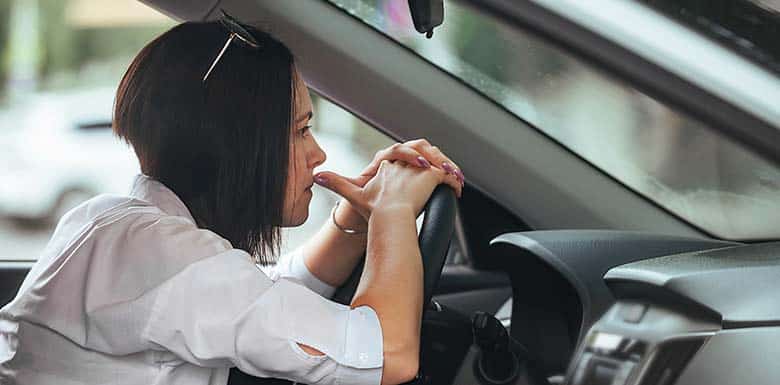Home | What Happens if I’m Caught Driving with a Revoked License?
Legal Blog
What Happens if I’m Caught Driving with a Revoked License?
02 December 2022 | OWI, Traffic Violations,

It can be frustrating if your Indiana license is revoked or suspended. It’s essential to follow the law and refrain from driving if you don’t have privileges. However, you still have options if you get caught driving with a revoked license. An experienced Indianapolis defense attorney can help you understand your legal options and work toward minimizing the penalties you may face.
An experienced traffic lawyer can help you navigate legal issues involving a revoked license. The more you understand, the better chance you will have to avoid the harshest penalties.
People often refer to a license as being revoked when it is suspended. In Indiana, a license may be suspended indefinitely, which has the same effect as being revoked in other states.
You may get a suspended license for the following:
In most states, a revoked driver’s license differs from a suspended one. When your driver’s license is revoked, it has been altogether canceled. You must submit to an investigation to get it back.
However, a suspension means that you cannot drive with your current license for a period. Your driving rights will be returned later.
Indiana does not officially “revoke” driver’s licenses. Instead, license suspensions might last indefinitely, depending on your circumstances.
Driving with a revoked or suspended license is a severe offense. You may face financial and criminal penalties.
According to Indiana Code (I.C.) 9-24-19-1, anyone who operates a vehicle on a public roadway without driving privileges or having a suspended or revoked license is guilty of a Class A infraction. A Class A infraction can result in a fine of up to $10,000.
While this is only a “notice” that you may potentially face additional penalties, it can significantly impact your life. The financial impact of such a high fine can be devastating.
If caught driving with a suspended or revoked license a second or subsequent time, you will face a Class A misdemeanor, according to I.C. 9-24-19-2. This applies to violations within ten years.
With a Class A misdemeanor, you may face up to five years in prison. Additionally, your driver’s license will be further suspended for up to two years more than your original suspension period.
Habitual traffic violations (HTV) include multiple violations of certain traffic offenses within a certain period. They can result in severe penalties, up to a lifetime suspended license.
A habitual traffic offender is a person who, within ten years:
Significant violations include reckless homicide in a motor vehicle, fleeing the scene of an accident, OVI/DUI, drag racing and speeding, and other serious offenses.
If a person is catastrophically injured or dies due to a serious traffic offense, they may face a Class D felony. That can result in between six months and three years in prison, along with a $10,000 fine, according to I.C. 35-50-2-7.
Once your suspension period is finished, you must go through the reinstatement process. This involves submitting proof of insurance and paying reinstatement fees. You can do most of the process electronically or with the assistance of an experienced license reinstatement lawyer.
If your suspension period is not finished, you may still be able to get driving privileges with a hardship license. This will allow you to drive to and from school, work, or other necessary places while your driver’s license is suspended.
Indianapolis criminal defense lawyer Sean Hessler has extensive experience working with people who have license suspensions. We know that you need to get your driving privileges back to return to everyday life. We aim to help you get back in your car as quickly as possible.
Call Hessler Law P.C. today at (317) 886-8800 or contact Hessler Law online form for a consultation.